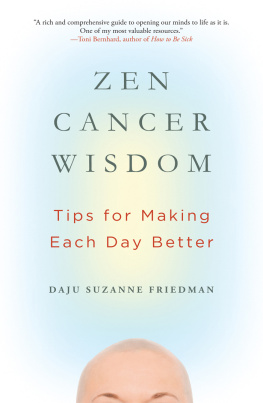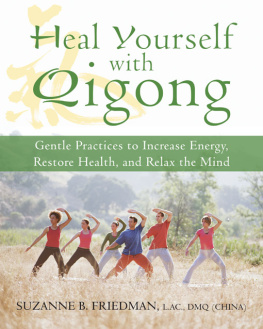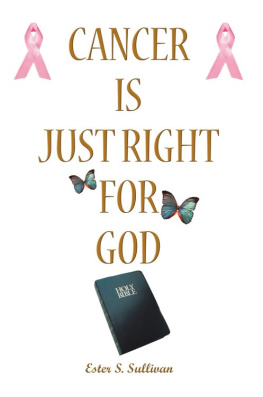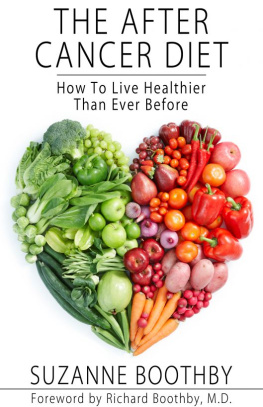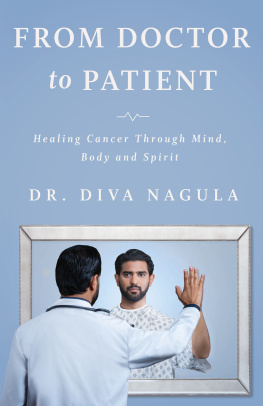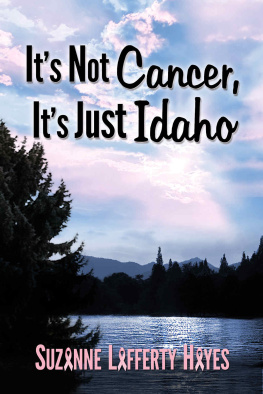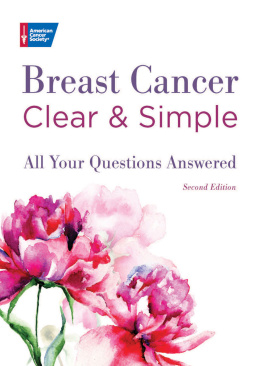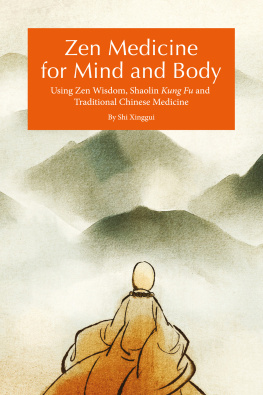ZEN CANCER WISDOM

When one has understanding, one should laugh; one should not weep.
HSUEH TOU
If you have lost your sense of humor you have lost your way.
JUNPO KELLY ROSHI
To my family, for their incredible love, support, optimism, and laughter.
To my Zen master and dear friend, Junpo Denis Kelly Roshi. The heart energy of the master and that of the pupil fit like a box and its lid.
To my healing team: Garrett Smith, Michael Broffman, Linda Asbury, Peggy Arent, Brain Weissbuch, Anna Dorian, Brian LaForgia, Jacob Chinn, Christy Mahoney, Vadim Derevyanko, Mark Renneker, Deb Follingstad, and Robert Nagourney.
To Andy Francis, my editor at Wisdom Publications. You are truly a wish-fulfilling jewel.
And most especially, to Suzannah Margaret Stason, my every-flower. Your love, kindness, compassion, and presence are the strongest medicines Ive ever encountered. I am grateful for every moment with you.
Contents
CANCER. What a wake-up call! You now have a direct realization of the truth of impermanence. What are you going to do? Dont waste another moment! Having cancer has been like an enormously interesting Technicolor 3-D movie. It didnt matter whether I liked it or not; it happened. Still, when I consider it from a deeper perspective, I wouldnt have missed it or any of the other so-called awful circumstances in my life.
Zen is the Japanese word for insight, awareness, and meditative mind. Zen is practiced to resolve the great confusion about life and death. If we see life and death as the same continuous process, we can fully experience life as a great gift. The ego wants comfort and permanence and freedom from pain. But when we cant have those, what do we do? How do we open ourselves to what is in front of us? We dont get to choose our experiences, but we can choose how we respond to them. Zen practice reveals that intelligence is brighter than our passions, our emotions. We can learn to stay fiercely and intelligently present or we can spin out into confusion.
I was shocked when I was diagnosed with cancer. I had been a longtime Zen practitioner and Ashtangi yogi, eating right and living right, and then there was a lump in my neck: Stage IV oropharangeal (a.k.a. throat) cancer. I actually thought the way I lived would protect me from old age and death! Then cancer came calling... Wake up!
Meditation practice, along with allowing me to be present with what iswith whatever is arisingallowed me to observe the cancer as interesting (not in a happy way, mind you). I consulted with doctors far and wide to find what might work to cure it. I did complementary medicine as well as intensive radiation and heavy chemotherapy. When my doc first saw me, he said that I looked like I could take a punch and decided he would go after it with the big guns. It worked.
I joke now that, like Woody Allen, I dont fear death; I fear life! Im fundamental in my Buddhist view, but an agnostic in general. I dont concern myself with whats next. The ego is a temporary construct, and when you have cancer you finally get impermanence. You get a taste of the truth of what Zen calls nonexistencethe truth that your socially constructed ego is not who you really are. How extraordinarily interesting! How difficult! This is the Zen view.
The side effects of treatment can get quite noisy. The gift that Zen practice gives is the ability to stay with what is. It isnt to become passive or nihilistic. We remain critically intelligent, paying full attention to what is happening, and trying to do what is necessary. What are our choices? Do we choose to live from a broader Zen perspective that transcends mental chatter, pain, and suffering? If we can do that, then in the face of any type of insult intelligence and discernment will prevail over emotionality and self-referencing. The gift of Zen that this book brings is the ability to stay conscious and present throughout the course of cancer.
I put my cancer where it belongs, behind me. I returned fully to life. I still eat well and practice Zen and yoga. The question for us all is, What do we do with the rest of our lives? For me, the answer was to go back to work. People are suffering. What is it for you?
I spread the Zen view and insight that our angst is our liberation. The practice is to stay conscious and awake in the face of whatever is, because we are, in essence, conscious awareness. We are only secondarily an egoevaluative, interpretive, and constantly self-referencing. When we stand in the light as the light, witnessing life from this deep perspective, we notice how extraordinarily interesting everything is, and how karmically interrelated and interconnected everything is. How could it be otherwise? Life is going to unfold as it will.
So now what?
If you are new to Zen or meditation, I recommend that you begin with some of the breathing exercises in this book. They will help prepare you for concentration meditation, such as counting while you sit (also included in this book). You will learn how to breathe into the space deeper and broader than your mind or thoughts. From this depth, you can experience fear and release it. This book will help you to feel better on many levelsphysical, emotional, and spiritual. Each level matters, and each is adequately addressed.
I have practiced many of the tips in this book, and they work. But remember: each tip is like a finger pointing at the moon. It can show you the way but you can get there only through your own efforts, through your own unique personal practice. Do not waste another moment!
Junpo Kando Denis Kelly Roshi
Abbot, Hollow Bones Zen Order
Appleton, Wisconsin
I WROTE THIS BOOK to wake you up, shake you up, and hopefully, at times, even to crack you up as you walk the path of cancer. It was written as much for me as it was for you. The majority of this book was written during my first and second cycles of chemotherapy for a recurrence of Stage IV lung cancer.
My story is just like yoursunique and not unique. Im a Zen priest, Chinese medicine doctor, and qigong master. When I was forty-one years old I was diagnosed with Stage IV lung cancer despite having lived the life of a meticulous health nut for over twenty years. The cancer went into remission after six months of non-chemo pharmaceuticals and an extensive complementary medicine regimen. It came back almost a year later, when I was forty-three. After trying everything else, I began chemotherapy and fortified my complementary medicine regimen to address the effectsahem, I mean side effectsof the chemo.
I went from a Chinese medicine doctor whose practice focused on cancer patients to a cancer patient myself. The world didnt make sense anymore. I was living the ultimate Zen koan or riddle: How could my anticancer lifestyle have led to Stage IV lung cancer? How could true love, broccoli, and qigong lead to illness? Zen is about fiercely facing what is in front of you, not about looking longingly behind you.
Layman Wang once asked his attendant, What would you do if a dragon suddenly arrived here? His attendant answered, I wouldnt pay attention to anything else. This is how it feels when youve been diagnosed with cancer. Your attention and focus shift dramatically toward just this one thing. While single-minded focus can be beneficial, it is also important to remember that you are more than your diagnosis and that there is more to life than being a patient.
I decided early on that I wouldnt let cancer take away my sense of humor or my joie dvivre. I experimented and discovered firsthand exactly what helped or hindered my mood, energy, body, and/or spirit. I learned how to ease unnecessary suffering during my cancer journey and began sharing this information with friends, family, patients, and strangers.

